Ethan Blumenthal knows how to turn a negative into a positive. Or, when life throws you a knuckleball -- stay patient.
Blumenthal, a Hyde Park native, was a letterwinner on the baseball team at Beloit College and decided to pursue a career as a baseball professional. He traveled to Australia to play in the Australian Baseball League after graduation, but after the 2014-15 season ended, offers to play in Germany and Sweden fell through.
His baseball ambitions crushed, Blumenthal moved back to Chicago and eventually recognized that he needed to shift gears.
Throughout college and his journey abroad, Blumenthal had been involved in comedy. At Beloit, he produced and starred in radio and TV shows; in Australia, he dabbled in stand-up comedy in Brisbane. So, it was during his time back in Chicago cobbling work together as a youth sports coach and baseball lessons instructor that Blumenthal noticed a void: After school programs weren't offering anything in the way of teaching comedy. His experience in improv comedy in particular taught him that kids could really benefit from the skills improv teaches, and he began to lay the groundwork for what is now Knuckleball Comedy.
1. What was an event or moment that made you want to pursue comedy instead of baseball or an athletic career?
It's hard to nail down one moment when I knew I wanted to pursue comedy but I do remember one night feeling pretty good about myself and the possibility -- it was a Monday night at a packed bar for an open mic [in Australia]. I had told my teammates about my comedic pursuits and from time to time a few friends would come to see me perform, but on this night the entire team was there, certainly ready for me to bomb so they could make fun of me. My routine that night was a huge hit though, and I guess it got to my head at that moment that maybe I am actually good at this and could make this a career. When I came back to Chicago in March with snow still on the ground and no baseball to play, I enrolled in improv and comedy-writing courses and that's when things really started.
2. What inspired you to create Knuckleball Comedy and what were some of the challenges in opening it?
When I returned from Australia, I coached high school baseball and then began working for a company which taught sports to kids at schools and camps. From these jobs and from many years of teaching private baseball lessons, I had spent a lot of time coaching kids in baseball and I really felt comfortable working with kids. And now I was spending lots of time in schools seeing all of the extracurricular options kids had from sports to dance to robotics but I never saw improv as an option. I knew how beneficial and fun improv could be for kids so it was a no brainer for me to start this company. In February of 2016 I wrote proposals and sent them to a few schools, under the title: "Ethan Blumenthal's Improv Comedy Crash Course," which we can all agree is a terrible name for a business.
In the Spring of 2016 I ran my first program at Akiba-Schechter Jewish Day School in Hyde Park where I attended school through eighth grade. From there it was mostly persistence, reaching out to more and more schools, camps, community centers and anywhere else you can imagine and figuring out what worked and what didn't. It's hard to pinpoint the biggest challenge -- probably the fact that I had no clue what I was doing. But it's an impov comedy business, so that seems appropriate, right?
3. Why improv instead of other forms of comedy? What other forms does Knuckleball experiment with?
Improv is good for every age. At its highest levels, improv requires multi-tasking, extreme attention to detail, and the ability to think quickly and creatively. There are things you can do with first graders with improv where they can be challenged but not overwhelmed and at the same time; you can take a group of the smartest adults you know and still teach improv. Our goals at Knuckleball Comedy are all about communication, teamwork and having fun, and improv lends itself to these in a unique way.
We do also teach sketch comedy-writing focusing on expression and communication through writing, providing kids an opportunity to really explore their passions and creativity. Like for example, what would happen if Grandpa came home and Grandma had turned into a unicorn? Come to our kids' sketch writing shows and you might find out. (Spoiler alert, grandpa still loves grandma for who she is underneath her unicorn body.) Kids are even able to shine some of their own life perspectives through writing. It's a lot of fun.
4. What are the main social and emotional benefits of improv comedy? How is it different with kids compared to seniors?
No doubt, number one, improv is fun for everyone; we laugh a lot. We always begin with warm-up games where the group does silly things that in a different context would seem embarrassing, but once they are comfortable doing it here, they really open up to everyone in the class. This releases a ton of anxiety (and for the young ones, a lot of built of energy from a day sitting in the classroom) and everyone feels more at ease making friends, learning and laughing together. From there, improv games and activities flow, building confidence and communication. Improv is, after all, the ultimate listening exercise. It's not just hearing what others say, it's listening to the details, understanding tone, mood, sub-context and reading body language.
For seniors, I'd add just a general sense of sharpening the mind and memory. When I'm teaching seniors, I often think of my grandfather sitting on the sofa doing the crossword puzzle. Improv is just like that, except it's a team game that goes 10 times faster with everyone laughing.
5. Who are some of your biggest influences, comical or personal?
Personally, my family has definitely had the biggest influence on me -- we're all very close. Now that I run my own business, everyone is involved in some way. My parents are both attorneys, so that's a big benefit. One of my brothers runs his own startup company (you'd be surprised how much comedy and healthcare data businesses have in common) and we share an office (i.e., we work in pajamas together). Even my oldest brother, the doctor, has a role. His official title is: Doctor.
For comedy, I am big fan of John Mulaney in terms of standup. He has a great presence and is really clever. For my own comedy that is what I would want people to say about me. Whenever I perform or write something, I always do it with the thought, "What if my grandparents were here?" (I'm lucky that often, my grandparents actually are seeing me perform). So, I try to be as clean as possible and I always appreciate comics who can be great with being clean.
I am also a big fan of Woody Allen and his movies. Something about that tiny neurotic man that really makes me laugh. And Walter Matthau, who most people my age have probably never heard of, is also one of my favorite comedic actors and I definitely write and perform with his character in mind.
6. What are some of your favorite, funniest or most meaningful Knuckleball stories so far?
Hearing feedback from kids, parents and seniors is the most meaningful; whether it's talking to a senior who says they haven't laughed like that in years or a parent who says Knuckleball Comedy is all their child talks about and they can't wait to sign up again. One of the most meaningful memories though happened this spring. We had a large class at Hamilton Elementary, 14 kids I believe, and we always end our sessions with a show and invite parents to attend. I arrived and there were 46 people in the audience. That was impressive and exciting to see and I definitely thought we're really onto something. And for the kids -- I know for a fact that every comedian in Chicago has performed in front of smaller audiences than that. But the kids do a great job and even though I work with them every day, they are always full of surprises.
7. How or in what ways would you like to see Knuckleball Comedy grow?
We will certainly continue to grow our programming for kids -- teaching more kids in more schools and are thinking about adding some city-wide comedy troupes even at some point soon for our more dedicated kids. Beyond that, we have recently begun doing more professional development days for companies and organizations (including school staffs). Working with adults is fun and a whole new challenge, but I definitely enjoy it and know the groups get so much out of it. I've done many improv shows for both kids and adults and when you ask a group of kids for a volunteer, every kid puts two hands up and begins jumping out of their seats. When you ask a room full of adults for a volunteer, whether it's a group of 10 adults or 150, zero hands go up. So, in many respects, adults need to develop these communication skills, confidence, and creative thinking abilities just as much if not more than kids. We use improv and sketch writing to give business and organizations tools to solve problems creatively, communicate better as teams, present with more poise and confidence to each other and to clients and even to teach leadership skills.
8. What was your Jewish background like and how has your Judaism influences you in pursuing your comedic career?
I grew up in Hyde park and went to Akiba-Schechter Jewish Day School and have attended Congregation Rodfei Zedek all my life (Akiba definitely merits a shout-out here, I ran my first class there and who knows what would have happened if that didn't work). While attending Oberlin College, I spent every Friday night at the Chabad House where I enjoyed celebrating Shabbat and holidays and meeting many other Jews doing the same. I have a very strong Jewish identity and it shows in many of my performances (I often have to test material with my non-Jewish friends to make sure they understand things like what's a shlemiel and what exactly does the moyle do.)
When I do some storytelling performances for senior citizens, many of the stories I tell are about being Jewish in places where there are no Jews (like when I lived in Madisonville, Kentucky to play baseball/learn how to say the Lord's Prayer.) This fall, I am working on an improv class for young Jewish adults. I love the idea of bringing young Jews together and teaching them improv which is sure to create friendships and help them in their daily lives as well.


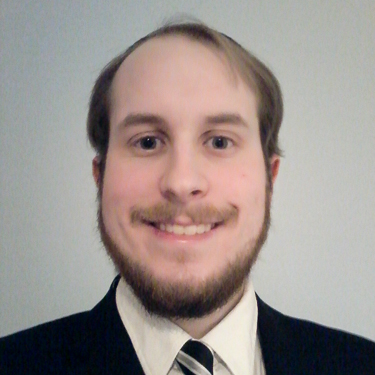
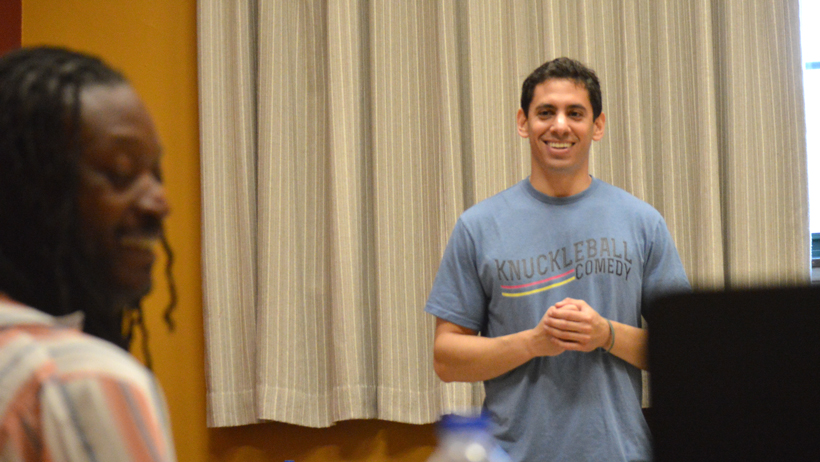
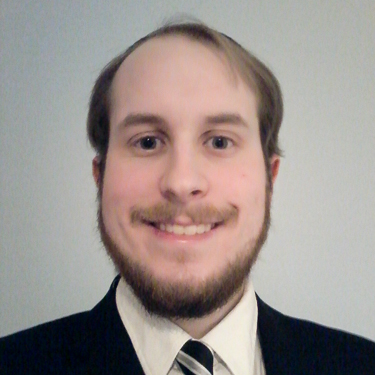
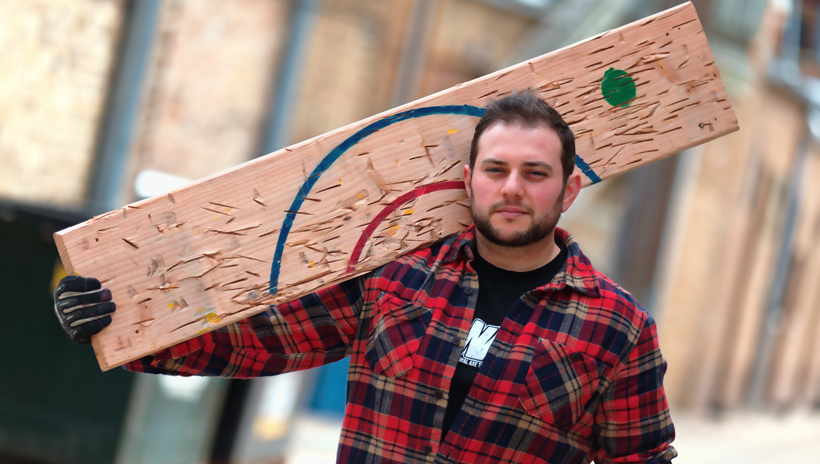
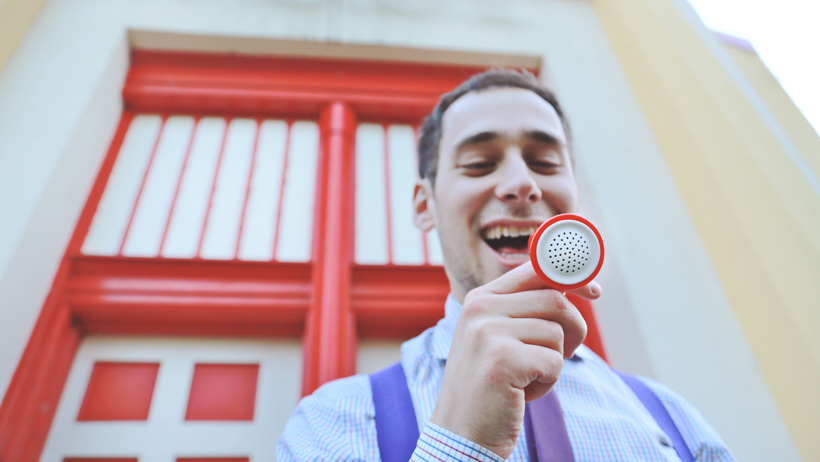
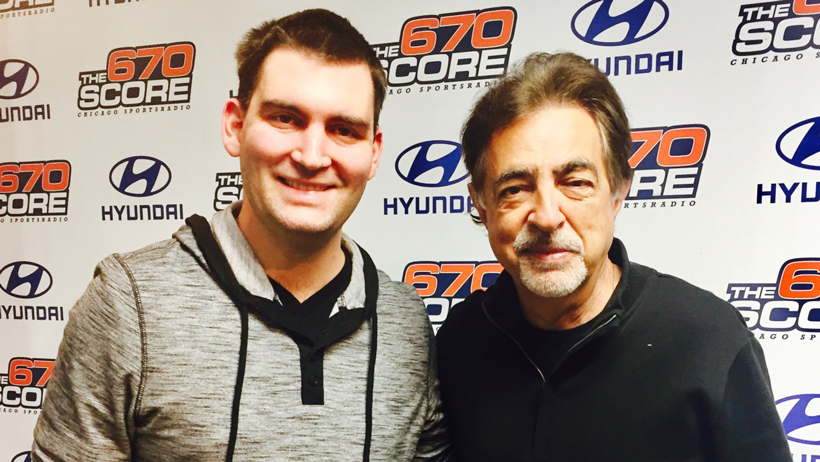
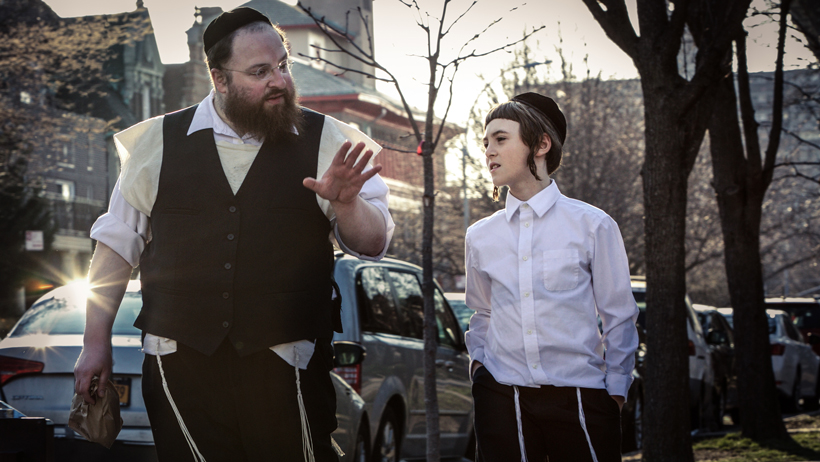

.jpg)



